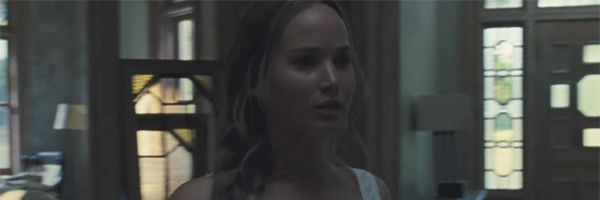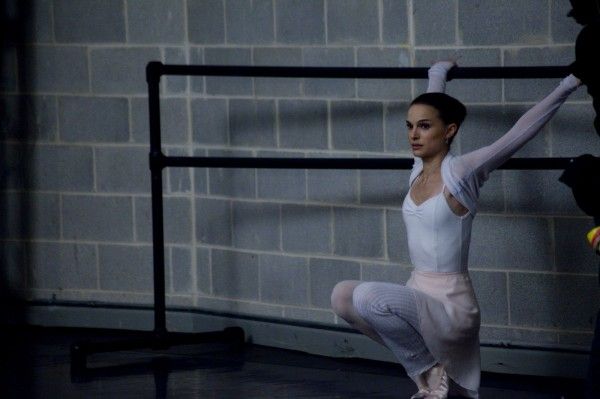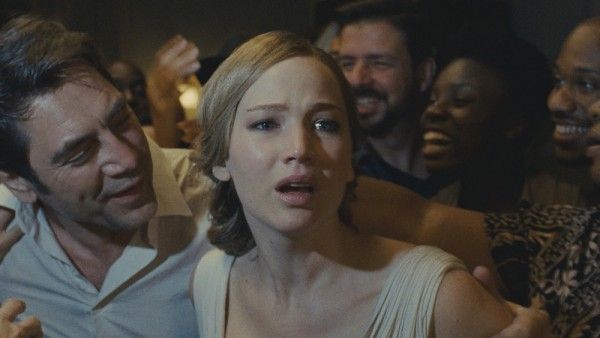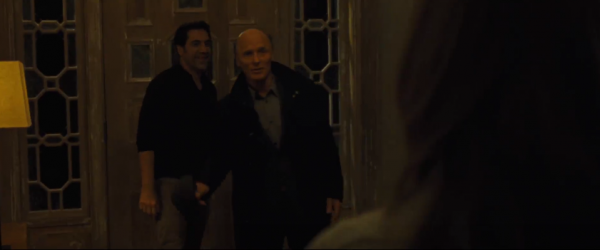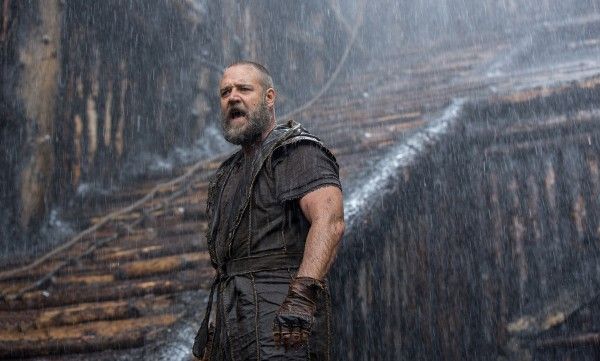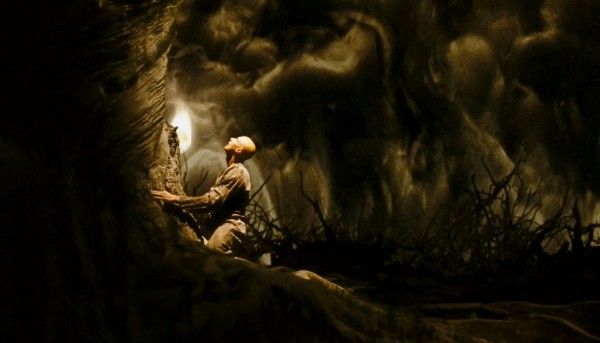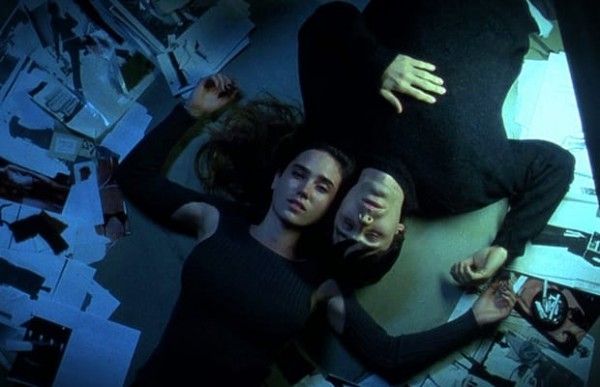Darren Aronofsky has been looking for a way to understand and communicate with the world for some time. In Pi, his galvanic debut feature, math, science, literature, and computer led a young genius to a series of numbers that could unlock the secrets of the stock market and the Torah, amongst other things. Requiem for a Dream depicted drugs as a way of both processing, funding, and ultimately corrupting or losing life. Physical and mental performance offered a way out for the lost souls at the center of The Wrestler and Black Swan, often requiring the destruction of the body for the sake of the elemental soul. The quest to find a path of clear reason in the chaos of life is often also a desperate attempt to transcend death or, to put it another way, to become a God.
For Max, the protagonist of Pi, this means having to take a whirring drill to his skull to break through the constraints of the body and mind. In the case of Mickey Rourke’s towering Randy “The Ram” Robinson, the stage name for Robin Ramzinski, the unending punishments of public battle, from being bashed by chairs and tables to skin punctured or torn by staples and barbed wire. Close-ups of gushing blood, gaping wounds, burns, and irritated skin are rife in nearly all of Aronofsky’s movies. The sound design is regularly unpredictable, amplified and often abrasive. The imagery can be hard to delineate purposefully, as Aronofsky tends to stick close to his stars visually, to emphasize an inability to escape one’s self.
Aronofsky makes horror movies where imagination and genius are the monsters against the confines of the physical form and its limited modes of expression or communication. The opposite could also be true. Even in his more openly spiritual works, specifically Noah and The Fountain, the mission of the soul – to conquer time and death or save civilization from a flood – is hemmed in by the fragility of flesh, bone, and brain. At the time of Noah’s release, a Fox News piece highlighted the fact that many Catholics did not appreciate Aronofsky’s film specifically because he made a point of showing all the people that were swept away and killed in the flood. The real human cost of miraculous purity is not easy to face, and that has been part and parcel of Aronofsky’s filmography thus far.
Though announced firstly as a Molotov cocktail tossed in the general direction of Catholicism, the first thing that struck me about mother! was not its religious critiques but rather that of the film industry, fame, and the actor-director relationship. Marketing materials made direct nods to Rosemary’s Baby, and Polanski is known for confronting the lacerating, tangled relationships between talented tradesmen and their muses. Polanski’s tales also often involve an intruder or interloper, the living dysfunctions in a peaceful system, and that’s also what mother! pivots on. When the nameless surgeon (Ed Harris) first arrives and sweet talks his way into the home of a similarly nameless poet (Javier Bardem) and his wife (Jennifer Lawrence), that’s when the becalmed, almost Malickian veneer of their world begins to crack.
Unlike Polanski’s films, however, mother! can only be taken half-seriously as a chamber drama or thriller. The lack of names, the involving yet vague dialogue, and the thrilling, dizzying swirl of imagery lends a purposeful fever-dream-like quality to the action. Everything feels unreal. As the movie’s narrative shifts from the bucolic yet creatively stifled serenity of the home that the poet and his wife share to ceaseless invasion and the decimation of their intimacy and trust, the particulars of what is going on are harder to suss out. By the time the home has become a shrine to the poet, overrun by worshippers who wish to ultimately consume their newborn son, there is little sense of stability or structure and yet it remains part of the film’s elliptical framework.
To focus on the Polanski influence would discount the other more subtle touchstones that Aronofsky takes a leap off from here. On Twitter, Rian Johnson was quick to point out a similarity between mother! and the oppressive terrors of Orson Welles’ adaptation of Kafka’s The Trial, in which a man is bullied by bureaucrats into being convicted of an unclear crime. The comparison is more than justified but there is a crucial difference: Lawrence suffers her hordes due to her relationship to a man, a great creator. The confusion and chaos caused by the unending intrusions into her privacy and her marriage never lose potency, forever making her connection to the beloved house and her husband vaporous and unreal. For a woman who is both currently dating her director and who had her private photos from her hacked phone tossed onto the internet for all to see, the reflective elements of the narrative must be forcefully felt and Lawrence’s dedicated performance echoes that.
Indeed, few films have so fearlessly communicated how surreal it can feel to be a famous young woman, especially when connected to a famous man. There are heavy notes of Hitchcock’s Marnie in Aronofsky’s depiction of how the husband manipulates his wife into believing that she’s being unreasonable and unkind for not sharing but she is the focal point here. The surgeon and his wife (Michelle Pfeiffer) present not just a distraction and intrusion but also a gaze into a possible future, like the visions in A Christmas Carol.
The film is overrun with symbolism, from the white-wine-colored tonic that the wife takes to the precious diamond that her husband salvaged from the ashes of his childhood home. And yet there’s a sense that the meaning of these symbols are unfixed, meant equally as a trap and an evocative spark of imagination. As Aronofsky sees it here, as well as in Black Swan, artistic invention can do as much damage as good and the attempt to meet a dominant man’s vision of a woman and her place is twice as dicey.
For as beguiling and arguably scary as much of Lawrence's character's experience feels, there’s also the unmistakable feeling that this is all the absurd, embellished, and finally uproarious complaints of a privileged white woman. A.O. Scotts’ belief that mother! is a dark comedy in psychological horror drag is inescapable. It's the only thing that fully explains the outlandish final movement of the film, as the home becomes a war zone and a bloodthirsty cult. That's when Aronofsky turns completely rueful but this turn doesn't take the terror out of mother!. Black Swan may seem more at home in the horror genre but both films are marked by women who push themselves into violent oblivion for their art and devotion but also the supposed greatness of an older, pompous man. mother! is far more madcap and unhinged by the end, but its demented satirical bent is no less unsettling than the repressed desires and anxieties at the heart of Black Swan.
The last time we see Lawrence she is broken, beaten, and burnt badly, the aftermath of facing the wrath of the piously dedicated but they barely measure as paper cuts in comparison perceived horrors of the spirit visited upon her character in the name of a man who is called a genius. “Death is the road to awe,” says a grand warrior to Hugh Jackman’s knight in The Fountain, and in the death of his wife, the poet reclaims his muse and sets back on the road of creation, ignoring the hellfire he left in his wake. For Aronofsky, however, the death is always just as remarkable and important as that awe.
For more on mother!, peruse our recent coverage in the links below:
- ‘mother!': WTF Is Going on in Darren Aronofsky’s WTF Movie?
- Darren Aronofsky Confirms What ‘mother!’ Is Really About
- ‘mother!’ Ending Explained: So What Exactly Happened?
- Darren Aronofsky on Wanting to Give People a Different Experience with ‘mother!’
- Every Darren Aronofsky Film Ranked, from ‘Pi’ to ‘mother!’

